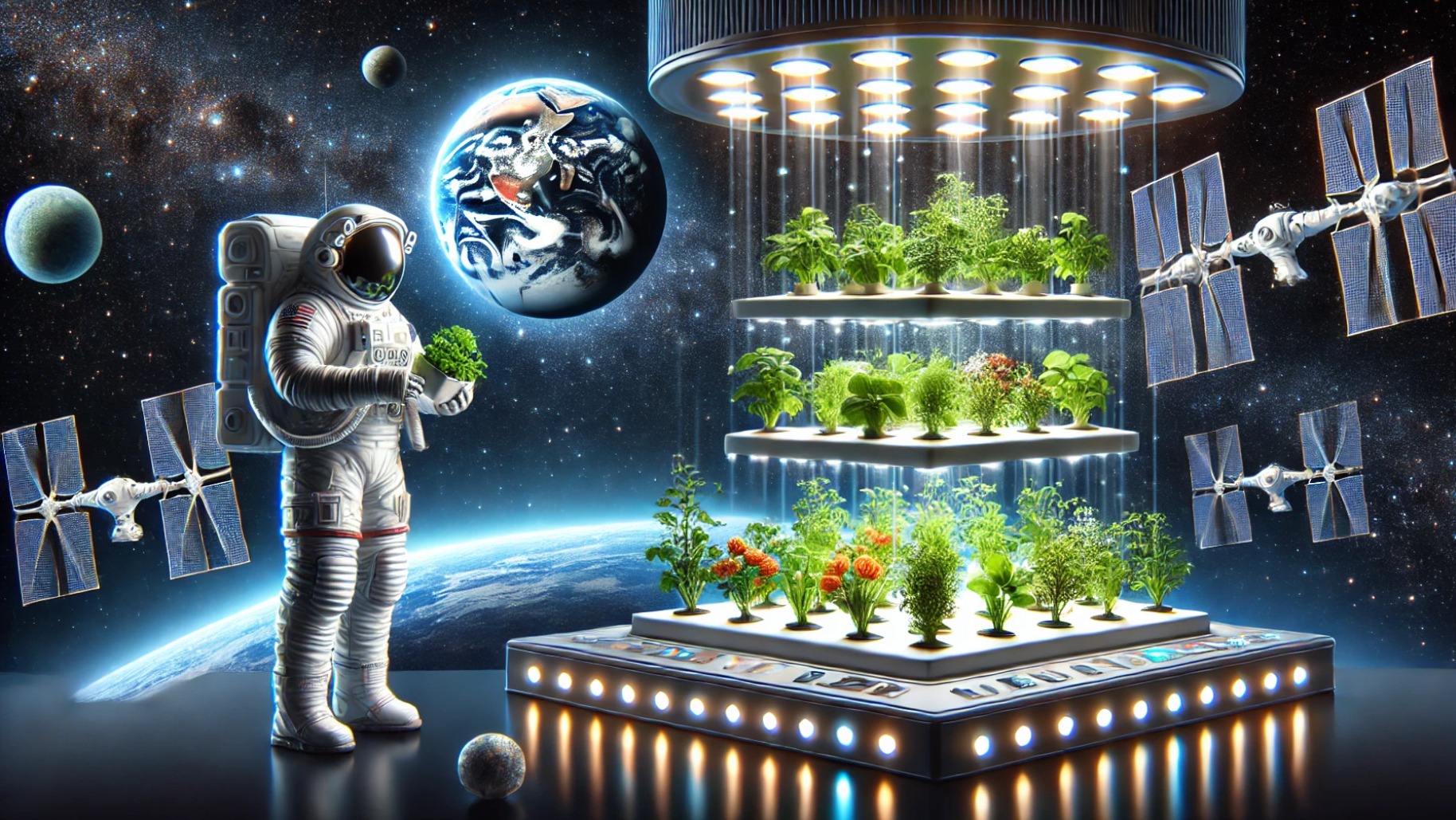As space exploration advances and the idea of human settlement beyond Earth transitions from science fiction to science fact, new questions emerge about survival. One of the most pressing is nutrition in space. How will humans feed themselves in the hostile environments of Mars, the Moon, or deep space? But beyond the technical “how,” another layer demands exploration: what happens when we consider nutrition in space from a Neorealist perspective?
In International Relations, Neorealism, also known as Structural Realism, offers a framework that focuses on the structure of the international system and the inherent power struggles between states. The theory argues that in an anarchic world, states act primarily in their self-interest, competing for resources and security in a zero-sum game.
While space may seem far removed from traditional state conflict, the Neorealist lens unveils how the pursuit of power, resources, and security is mirrored even in this new frontier.
Space Nutrition and State Interests
Space agencies like NASA, ESA, Roscosmos, and private companies such as SpaceX are all racing toward a sustainable presence in space. While the surface-level objective might seem solely scientific, neorealism would interpret these actions as power-seeking maneuvers. Space nutrition technology—systems to grow food, recycle nutrients, and ensure a balanced diet in microgravity—is a strategic asset.
Control over these systems could lead to dominance in space settlement, as the ability to nourish a space-faring population directly affects mission endurance and, ultimately, who “owns” space.
The Quest for Resource Independence
According to Neorealism, self-sufficiency is key in an anarchic environment. States must prioritize autonomy to avoid dependence on rivals.
In space, this translates to developing systems to grow food independently, recycle water, and manage waste sustainably. The fewer resources a colony requires from Earth, the more it can operate freely, minimizing vulnerability to disruptions in supply lines. Developing proprietary nutrition systems, such as self-contained greenhouses or algae-based nutrient recyclers, could become points of leverage, making states and private players less dependent on Earth-bound logistics. As Neorealism would predict, any system that reduces vulnerability and increases autonomy is a step toward power in the cosmic arena.
Potential for Conflict over Technology and Resources
Resources like water, arable soil substitutes, and nutrient delivery systems are limited, expensive, and challenging to obtain in space. States are likely to protect their research on these resources rigorously, creating proprietary technologies that could even become classified. This aligns with Neorealism’s notion that states act to secure advantages over others.
Just as military technologies are often guarded secrets, space nutrition systems might become similarly protected, potentially triggering a new form of “space race” focused not only on territory but also on technological superiority in survival.
Space Nutrition as an Element of National Security
For Neorealists, national security is central to international relations. Nutritional autonomy in space is a logistical necessity and a security imperative. Whoever masters space nutrition ensures that their space programs are less vulnerable to disruption.
Imagine a scenario where a space colony reliant on Earth-based supplies suddenly finds its lifeline cut off due to geopolitical tensions. The colony’s stability and even survival could be compromised, making robust, independent nutritional systems a direct contributor to a nation’s security in space.
The Role of Nutrition in Astronaut Performance and Mission Success
Space presents unique physiological challenges. With the lack of gravity, astronauts’ bodies experience muscle and bone loss, fluid redistribution, and compromised immune function. Nutrition becomes a first line of defense in counteracting these effects.
Essential nutrients must be carefully balanced to maintain physical and cognitive function. Inadequate nutrition or poorly planned diets can lead to fatigue, impaired decision-making, and even depression, all of which could be catastrophic in an environment where every action and decision is critical.
Because space missions require extreme physical and mental resilience, nutrition is not just about meeting basic needs. It’s about optimizing the crew’s health, agility, and response to stress.
In a Neorealist framework, this optimization translates directly to a state’s power in space, as nations with well-nourished, high-performing astronauts maintain an edge in exploration and potential colonization. As we push further into space, the need for space-focused nutrition research grows, revealing the value of teams capable of creating highly specialized food plans that align with the physiological demands of space.
Nutritionists as Strategic Assets for National Space Programs
The role of nutritionists in space exploration cannot be overstated. Crafting food plans for astronauts requires expertise not only in traditional nutrition but also in biochemistry, food science, and human physiology under extreme conditions. Nutritionists who can design sustainable, nutrient-dense meal plans that are compact, lightweight, and can be stored long-term are invaluable assets. They serve as strategic contributors to a space mission’s security and success, ensuring that astronauts are not only surviving but thriving.
In the context of national security, these professionals become key players. Their work directly influences the health, safety, and performance of those on the front lines of space exploration. By investing in the development of space-focused nutritionists, states can gain an advantage in the “space race.”
A country with a well-trained team of space nutrition experts is more likely to keep its astronauts healthy, reduce reliance on Earth for supplies, and maintain a stable presence in space—all crucial factors in the neorealist pursuit of power and security.
The Broader Implications for National Security in Space
Nutrition in space isn’t just about individual survival; it represents a cornerstone of a sustainable human presence off Earth. A state that leads in nutrition technology gains autonomy and resilience, reducing vulnerability to external pressures or crises on Earth. An astronaut crew reliant on Earth for basic sustenance would be at a disadvantage compared to one equipped with sustainable, self-sufficient nutrition systems and plans.
In this light, the mastery of space nutrition technologies—encompassing both the science of food production in space and the art of nutritional planning—becomes a powerful component of a nation’s strategic portfolio.
As space exploration and potential colonization efforts intensify, the countries that can independently nourish their space populations will emerge as leaders in the new frontier, reinforcing their security and influence in the global hierarchy.
This competitive edge is vital, transforming nutritionists and their innovations into pivotal contributors to a state’s security and power projection in space.
Conclusions: Nutrition and Neorealism’s Relevance Beyond Earth
- Space nutrition is a critical instrument of power, autonomy, and security for states in the competitive arena of space.
- Mastery of space nutrition technology allows states to sustain their personnel independently, reducing reliance on Earth-bound supplies.
- Space nutritionists serve as strategic assets, providing expertise to ensure astronaut health and endurance in extreme environments.
- Control over life-sustaining resources in space enables states to project stability and strength in times of geopolitical or economic conflict.
- Neorealism highlights that space exploration, though aspirational, is grounded in the strategic pursuit of power and security.
Referencias:
- ChatGPT. (n.d.). OpenAI. https://chat.openai.com/#
- Space Food for Thought: Challenges and Considerations for Food and Nutrition on Exploration Missions. (2020, septiembre). The Journal Of Nutrition. https://jn.nutrition.org/article/S0022-3166(22)02310-0/fulltext
- Neorealism. (s. f.). Obo. https://www.oxfordbibliographies.com/display/document/obo-9780199743292/obo-9780199743292-0037.xml









No responses yet